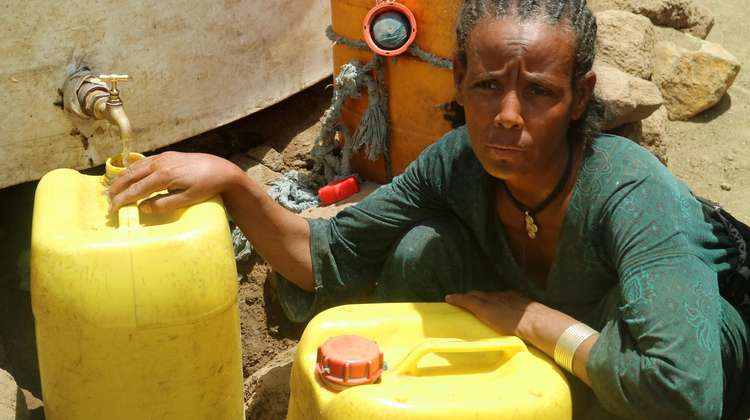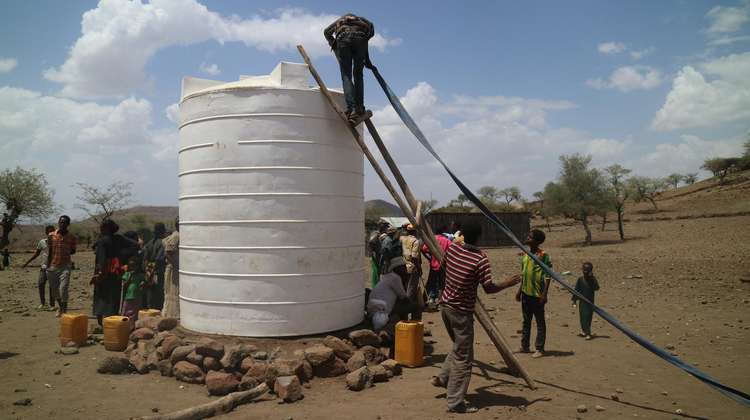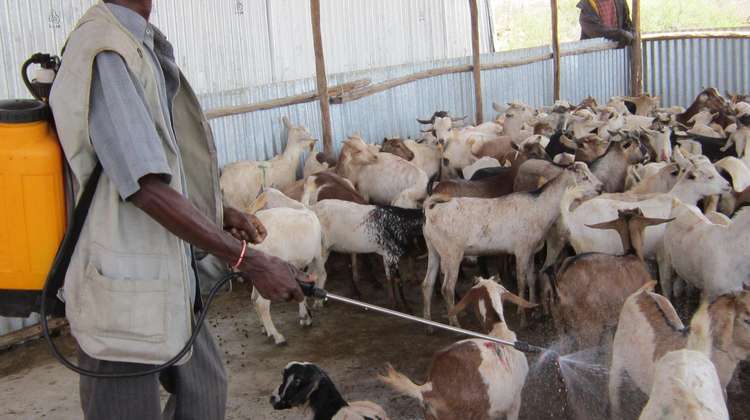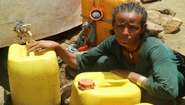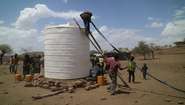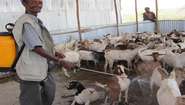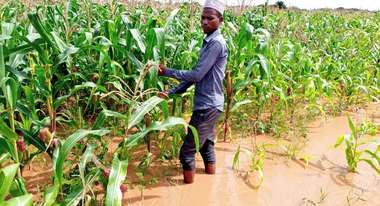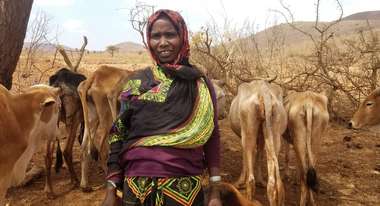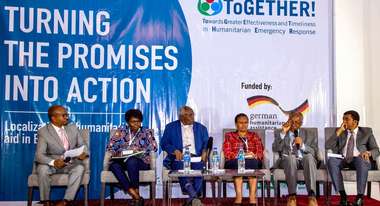Water and Medical Aid During Droughts
The drought at the Horn of Africa won’t come to an end. It robs millions of people of their livelihood. Welthungerhilfe extends its aid in the affected countries to save lives.
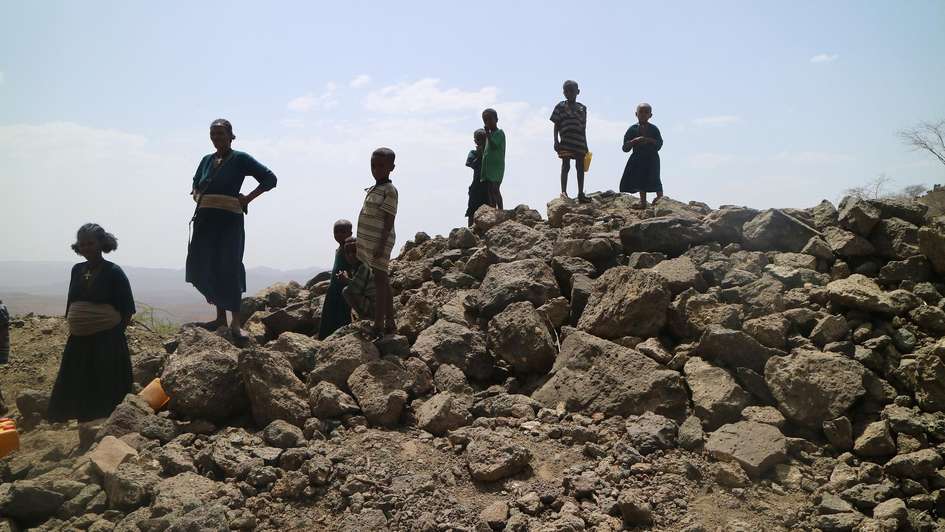
In 2017, Africa was struck by another drought: In Ethiopia, Kenya, Somalia and South Sudan, over 12 million people are threatened by famine. The province of Borana in southern Ethiopia has missed entire rainy seasons. Herders are losing livestock to the long dry spell, and farmers can no longer cultivate food in their parched fields. Welthungerhilfe is improving living conditions in the region through various projects and approaches.
People in Borana traditionally rely on a livestock-based economy. Overused land and droughts have rendered pasture areas infertile, and there is no longer enough feed for the herds. Livestock is falling ill or dying on a large scale. This presents a dramatic problem for families that live from and with their animals: They can sell neither animal products such as milk or meat nor the animals themselves. They have no money to buy food for themselves. Driven to desperation, they end up having to reduce their food intake. In recent years, around a third of the population has depended on emergency aid due to droughts.
Clean Water Changes Lives
Poor water supply affects not only animals but also people. Residents of the rural regions of Borana have access to an average of four litres of water per day, i.e. eleven litres less than the official minimum standard. Welthungerhilfe is helping people to access clean drinking water: It is repairing wells, installing solar pumps and water tanks, and distributing mobile water filters.
A mobile water filter completely changed Dima Wago's life. The 30-year-old, her husband and their two children had previously drunk largely from open ponds or unsecured watering holes. As a consequence, they often became sick, with the children in particular suffering from diarrhoea. The regular visits to the health clinic and the necessary medication tore through their small family income. Since Dima Wago got the water filter from Welthungerhilfe, they only drink filtered water. The family is now significantly less prone to illness and can save up for hard times.
How Welthungerhilfe Supports People in Ethiopia
More than 200,000 people in Borana are receiving support.
- It provides clean drinking water to the region.
- People from the region are being trained as animal health helpers. In addition, they are being equipped with tools and medications. They now look after the sick animals in the region.
- Residents receive support to found entrepreneur groups. Participants of such groups primarily include women, who often have to provide for their children alone.
- New toilets are being installed in ten schools.




